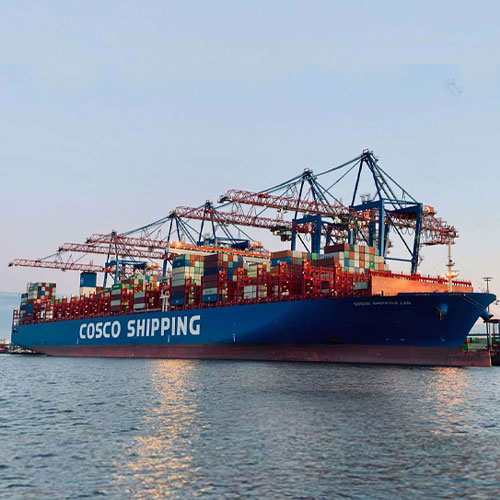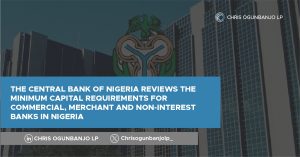Introduction
This Memorandum is intended to set out the principal Nigerian legislation and guidelines which an investor needs to address if he wishes to register a Nigerian Shipping Company and to consequently be accorded National Carrier Status by the Nigerian Maritime Authority. It also seeks to provide general guidance on related issues such as safety requirements as well as an overview of the Nigerian national Petroleum Corporation (NNPC) crude oil shipping procedure. It will also consider the topical issue of Bareboat Charter registrations.
The registration vessels under the Nigerian flag is governed by the Merchant Shipping Act, (MSA) CAP 124 of the Laws of the Federation of Nigerian 1990 and its subsidiary legislation. The Act is supplemented by regulations dealing with such matters as crew competency, safety rules, load line rules, collision etc. it is modelled after the English Merchant Shipping Act of 1894, save that where the English MSA was re-enacted in 1976 and amended four times thereafter, the Nigerian MSA has remained static, oblivious to fundamental Maritime developments.
The shipping register is administered by the Maritime Inspectorate Division, a department of the Federal Ministry of Transport and all official forms are obtainable from the Register of Shipping whose office is within the Inspectorate. The inspectorate Division has now been merged with the Nigerian Maritime Authority which was established to meet and manage the objectives of the UNCTAD Code of Conduct for liner conferences particularly the observance of the 40:40:20 ratio for carriage of inward and outward cargo.
Eligibility for Registration
Automatic eligibility is granted to Commonwealth Citizens and Companies established under and subject to the law of a Commonwealth Country and having their principal place of business in a Commonwealth Country.
Foreign-owned ships are also eligible for registration in Nigeria, provided its owners comply with Nigerian company law and Immigration Regulations such as the procurement of a Business Permit which is a permit granted by the Nigerian Investment Promotion Council to businesses that have foreign equity holding. In certain cases prospective applicants may also seek Expatriate Quotas and Residence Permits enabling the foreign crew and administrative staff to work and reside in Nigeria.
International Conventions
Nigeria has ratified all the principal International Maritime Conventions but all are part of the Corpus Juris Curitis of Nigeria due to certain Constitutional provisions that prevent Treaties from automatically becoming part of domestic law.
Registration Procedure
Application for the Registration of Nigerian Ships are made to the Registrar of Shipping in Lagos. Nigeria does not operate an open registry and therefore a Nigerian Consul is not permitted to accept registration documents and cannot issue certificates. However, the Registrar may temporarily accept facsimile copies of documents supporting an application for registration but it is assumed that the originals will follow shortly thereafter in order for the vessel to be registered.
The Nigerian Registry of Ships makes a distinction between provisional and permanent registration. Provision Registration may be granted to a ship to enable it to sail and operate within territorial waters, pending the issuance of a permanent certificate of registration.
Documentation Required to Support Application for Ship Registration
The following documents are required by the Registrar of ships to support an application for Registration.
- If it is a corporate applicant:
- Its letter of application on its company letter headed paper;
- Completed Ministry of Transport Registry Forms;
- Certificate of Incorporation;
- Memorandum and Articles of Association;
- Current list of Directors of the company (Form CO7);
- Current Tax Certificate of the company and its directors respectively;
- Deletion Certificate from last registry (that is if the ship was previously registered in another country);
- Tonnage Measurement Certificate issued by a Nigerian registered surveyor;
- Builder’s certificate if it is a new ship;
- Bill of Sale if the ship is purchased second hand;
- Application for the allotment of International Code signal in Form Registry 19 ;
- Declaration of the Ship’s name;
- Payment of Registration fees (Depending on size of the ship);
- Present location of ship and its employment;
- Copy of last Radius Safety Certificate, Load Line Certificate and Safety Construction Certificate;
If the application is made by an individual owner he will be required to submit the following documents in addition:
- Declaration of an individual owner or transferee;
- Particulars of citizenship;
- Personal Income Tax Clearance Certificate;
Some maritime practitioners opine that before a ship can be registered in Nigeria it must be classified as a member o the International Association of Classification societies. Experience suggests that although this can be an advantage, it is certainly not a mandatory requirement.
Ship Registration Fees
The fees provided under the MSA are obsolete and therefore are revised from time to time by way of circulars, to reflect current economic indices. The current fees are those recommended by the ministry of Transport in 1995 even though it is projected that a new schedule of fees will come into force before the end of May 2000. Nevertheless the existing fees of 1995 remain effective until further notice. All fees are payable to the Registry and quoted in Nigerian currency.
Existing Fees in Respect of Ship Registry. (Fees recommended in 1995)
| Part IX | |
| Fees for Change of Name of a Ship | |
| For a ship under 600 tonnes | N 500.00 |
| For a ship 600 tonnes but under 1,600 | N 500.00 |
| For a ship 1,600 tonnes but under 3,000 | N 500.00 |
| For a ship 3,000 tonnes but under 5,000 | N 500.00 |
| For a ship 5,000 tonnes but under 6,000 | N 500.00 |
| For a ship 6,000 tonnes but under 10,000 | N 500.00 |
| For a ship 10,000 tonnes but under 20,000 | N 500.00 |
Nigerian Licensed Fees
For issue of Original Licence
For a ship under 50 tonnes
For a ship 50 tonnes but under 100 tonnes
For a ship 100 tonnes but up to 200 tonnes
For every 100 tonnes or a part of 200 tonnes
For each endorsement on a licence
Part X
On Initial Registry and Transfer of Registry
Ship of 500 GMT and under
500 GRT but under 700 GRT
700GRT but under 1,000 GRT
1,000 GRT but under 2,000 GRT
For every 500 tonnes or part of 500 tonnes In excess of 2,000 tonnes
- 500.00 N 500.00 N 500.00 N 500.00 N 500.00 N 500.00
- 1000.00 N 2500.00 N 3500.00 N 5000.00
N 200.00
Bareboat Charter Registration
The Nigerian Registry of Ships grants recognition to Bareboat Charters however before such ships can be registered, a notarised Power of Attorney must be tended to the Registrar of Ships authenticating the arrangement. In addition the Registrar must be given full proof that during the period of the Charter, the first registration has been suspended as Nigerian law does not patently recognise dual registration. A deletion certificate from the last registry of entry will suffice as evidence of suspension.
However, the Government Inspector of Shipping (GIS) is known to give approval to Chartered-in foreign ships to operate within Nigerian territorial waters and this is renewable yearly. These ships may during the period of their licence, continue to fly the flag of their home registries. It has also been recommended that Nigeria adopt the system known as “PARDON” which was adopted in Mexico; whereby Bareboat chartered vessels may be registered in the Nigerian Register and allowed to enjoy all the privileges of Nigerian Registration i.e. Cargo Reservation, Low Cost Bunker, provided the vessel is purchased by the Charterer within 2 years failing which all privileges would be lost and the difference in the cost of the Bunker shall be reimbursed. This system would definitely increase Nigeria’s Maritime tonnage without the necessity of going through the initial capital outlay of outright purchases.
The following documentation is required in support of the application:
- Vessel Age;
- Current Tax Clearance Certificate of the Company and its Directors
- Survey Report Indicating Condition of Ship
- Copies of all Statutory Certificates
- Classification Society Certificate
- Charter Party
- Provisional Registration Certification
- Certificate of Build for newly Built Ships
- Corporate Applicant must submit Memorandum and Articles of Association
- Names and address of the Charterer’s Shareholders
Effect of Registration on Maritime Mortgages in Nigeria
Maritime mortgages are created in Nigeria by submission of the Mortgage agreement, and letter of consent to the Ship registry. Subsequent mortgages can also be created on the same vessel and they must also be registered. Registration of mortgages and liens is paramount because priority is determined by the date of registration, as opposed to the date of creation of the mortgage.
A registered mortgagee of a ship may dispose of the ship in respect of which is registered once his power of sale becomes exercisable provided he is first in turn. If there is a prior registered lien or mortgage, he can only exercise his power of sale through an order of a Court of competent jurisdiction. In Nigeria, the appropriate Court of jurisdiction vested with maritime and admiralty matters is the Federal High Court.
Safety Regulations
The most important convention to which Nigeria has acceded but which is yet to form part of our laws in the International Convention for the Safety of Life at Sea 1974 “SOLAS 1974”. The current Merchant Shipping Act is based on the 1948 Convention for the safety of life a sea which is now unfortunately obsolete. Indeed, it should be borne in mind that SOLA 1974 is only concerned with ships of 500 tonnes or more. Many of the local regulations deal with small ships and boats and therefore not subject to SOLA 1974
In any event every ship owner must have its vessel surveyed annually and must ensure conformity and the plans and specifications stated in its documentation for registration. The classification societies recognised by the Registrar of Shipping are the following:
- American Bureau of Shipping
- Lloyds Register of Shipping
- Bureau Veritas
- Det Norske Veritas
- Germanischer Lloyds
- The Royal Yachting Association
Pilotage
The Nigerian Ports Authority operates pilotage services which are compulsory for every vessel in excess of 1416 Gross Registered Tonnage, entering, leaving port or changing berth within Nigerian Territorial Waters. It must be carried out by a Nigerian Ports Authority pilot unless the master of the vessel is licensed as a pilot in the pilotage area. Where the vessel is not registered in Nigeria, it should not exceed 17166.66 Net Registered Tonnage (NRT) or 1016.95 NRT for vessels registered in Nigeria. The following Ports are designated as compulsory pilotage districts:
- Tin Can Island Port
- Warri Port
- Sapele Port
- Rivers port – Port Harcourt, Okrika and Bonny
- Calabar Port – Available on application
The following Certificates are also required to be carried and exhibited by the Master upon entry into the Ports:
I. Ship Entry Notice;
II. Registration Certificate of Vessel;
- Seven Copies of Final Manifest for Approved Ships; IV. Certificate of Pratique;
V. Certificate of Insurance of Vessel;
Ship Acquisition and Building Fund (SASBF)
The SASBF was established in 1993 pursuant to Section 13 of the National shipping Policy decree (1897). The fund is aimed at assisting indigenous shipping companies in the ship acquisition process by the granting of soft loans. The fund is financed by the Nigerian
Maritime Authority through the deduction of 2% of gross freight from all vessels calling at any Nigerian Port. The fund is administered by a Board of Directors who review applications based on recommendations submitted to it by its management. The approval of the Ministry of Transport is obtained after which the relevant documents and information are submitted to the Ministry of Finance, who would then authorise the disbursements. A Monitoring sub committee ensures that all the conditions attached to the loan are complied with.
Presently, 8 indigenous companies have fully benefited from the SASBF Fund. Approval has also recently been grated for the financing of a Product Carrier.
Overview of NNPC Crude Oil Shipping Procedure
NNPC Crude Oil exports are programmed on a monthly basis; ie. one month before the month of lifting. ‘the one month notice prior to lifting is necessary to enable the Buyer to have sufficient time to charter a suitable vessel, either with respect to size, time of availability or directing of sailing at the time of fixture.
Nomination of Vessel by Purchaser
After receiving NNPC’s advice of it’s crude allocation, the buyer is expected to nominate a vessel to NNPC not later than five working days to the first day of the laycan. The buyer’s vessel nomination should contain such information as:
- Name of Vessel
- Vessel’s dead-weight (class)
- Year Built
- Flag
- Owner
- Technical information such as draft, beam LOA etc.
- Nationality of the Crew
Vessel Clearance
All the vessels nominated by NNPC’s crude oil customers are cleared with the Terminal Operators and the Department of Petroleum Resources (DPR), before NNPC provides acceptance of such vessels.
The Terminal Operators give clearance for all vessels after ascertaining that such vessels are fit in all technical aspects to sail into the oil terminals. The Department of Petroleum Resources gives security and official clearance for all vessels coming into Nigerian oil terminals. After obtaining clearance from both entities and the NNPC has been advised, the NNPC then gives official clearance to it’s customers, hence the need to nominate vessels not later than five working days before the first day of the lifting laycan.
Information Required from Vessel Prior to Arrival
Prior to the arrival of the vessel into the oil terminal the following information must be provided to the Terminal Operator through the NNPC:
- Vessel’s expected time of arrival (ETA)
- Buyer’s nominated vessel agent
- Customer’s nominated inspector
- Vessel’s destination i.e. discharge Port
- Documentary instruction for the lifting
Loading Operations
Upon arrival at the loading terminal all vessels come under the control of the Terminal Operator from berthing, and hole connection to the moment the holes are disconnected and the vessel unberth’s. During this period all vessels and Masters are bound by the rules and regulations prevailing in the terminals. Such rules include international safety rules, loading regulations and procedures.
The following parties and government agents are required to be present during all loading activities:
- Terminal Operator
- NNPC, Crude Oil Sales Dept.
- Dept. of petroleum Resources Representative
- Buyer’s Appointed Inspector
- Nigerian Customs Service
- Officials of the Nigerian Port plc
- Officials of the National maritime Authority
- Officials of the Immigration Dept.
- Officials of the national Drug Law Enforcement Agency
NNPC’s Policy on Crude Oil Shipment
Only vessels listed in the Lloyds of London Shipping Index are acceptable to NNPC. No vessel is imposed on buyers but only vessels which meet the above requirements are given clearance to sail into Nigerian oil terminals. However, vessels that have any history of accident or damage to a Nigerian oil terminal or other terminal anywhere in the world will not be cleared by Terminal Operators until appropriate proof that all such breaches have been satisfactorily remedied is provided by the Owners of such vessel
The information contained in this publication is only intended as a general review of the subject concerned. Detailed specialists advice should always be obtained before any action is taken in accordance therewith.
If you would like further information on this article or if you would like to be place don our mailing list, please contact Ms. Tamara Egede of Counsel or Mr Abimbola Ogunbanjo of our Shipping Group.



